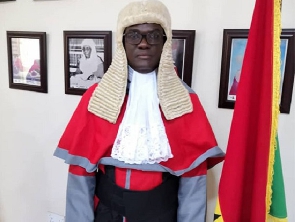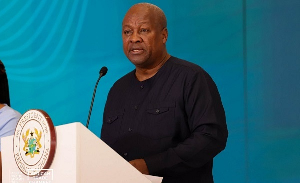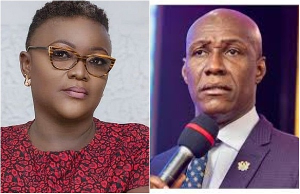A Supreme Court nominee, Justice Ernest Yao Gaewu, has assured that he will carry out his duties devoid of political bias if approved. He said, despite his past association with the New Patriotic Party (NPP), he would be an impartial arbiter and discharge his mandate without any political interference. Responding to concerns about his past political life at his vetting by the Appointments Committee of Parliament in Accra yesterday, Justice Gaewu said his political views would not influence his work at the apex court. Justice Gaewu, who was appointed as a High Court Judge in September 2020, was the NPP parliamentary candidate for Ho Central in the 2016 general elections. Before assuming the role of High Court Judge, he said, he resigned from the party in 2020. He, therefore, assured the country that his application of the law would be devoid of political bias. “The rules that are played in the Judiciary are different from the Executive and that of the Legislature. I am already on the bench and have sworn the oath of allegiance and secrecy and the judiciary oath, but I have not been partisan. But going into politics is a constitutional right, and I don’t think my politics has affected my work,” Justice Gaewu added. Answering a question on what his position would be if a case involving the NPP and the National Democratic Congress (NDC) was brought before him as a justice of the Supreme Court, he noted that he would remain a neutral arbiter in all cases involving the two parties. Justice Gaewu said while the Constitution did not bar a justice of the High Court from being a member of a political party, the manner in which the Judiciary was created required one to be a neutral arbiter. In this regard, he explained that it would be detrimental if a justice of the court were to belong to a political party. He said, in as much as the Constitution was a political document and decisions of a judge containing some amount of politics, judges were barred from being partisan. On whether he had the experience to work at the Supreme Court, given that he had been a justice of the High Court for two years, Justice Gaewu said his 22 years in law practice had allowed him gain enough experience to work as a Justice of the Supreme Court. “The qualification is 15 years at the bar, but I have 22 years qualification and I am not the first person to have ever been appointed. There are people who are appointed straight from the bar without any judicial or bench experience; I have been on the bench and I already have the necessary experience to sit there,” he said. The nominee refuted claims that the Supreme Court was interfering in the mandate of the Legislature. On what must be done to insulate the Judiciary from political influence, Justice Gaewu said the Constitution provided for the administrative, judicial and financial independence of the Judiciary. However, he explained that, although the Judiciary had administrative and judicial independence, financial independence was not guaranteed. He called for a review of the asset declaration regime to enable the fight against corruption. On Tuesday, two other Justices of the Appeal Court, Justice Barbara Frances Ackah-Yensu and Justice George Kingsley Koomson were vetted following their nomination to the Supreme Court by President Nana Akufo-Addo.
General News of Sunday, 23 October 2022
Source: ghanaiantimes.com.gh













